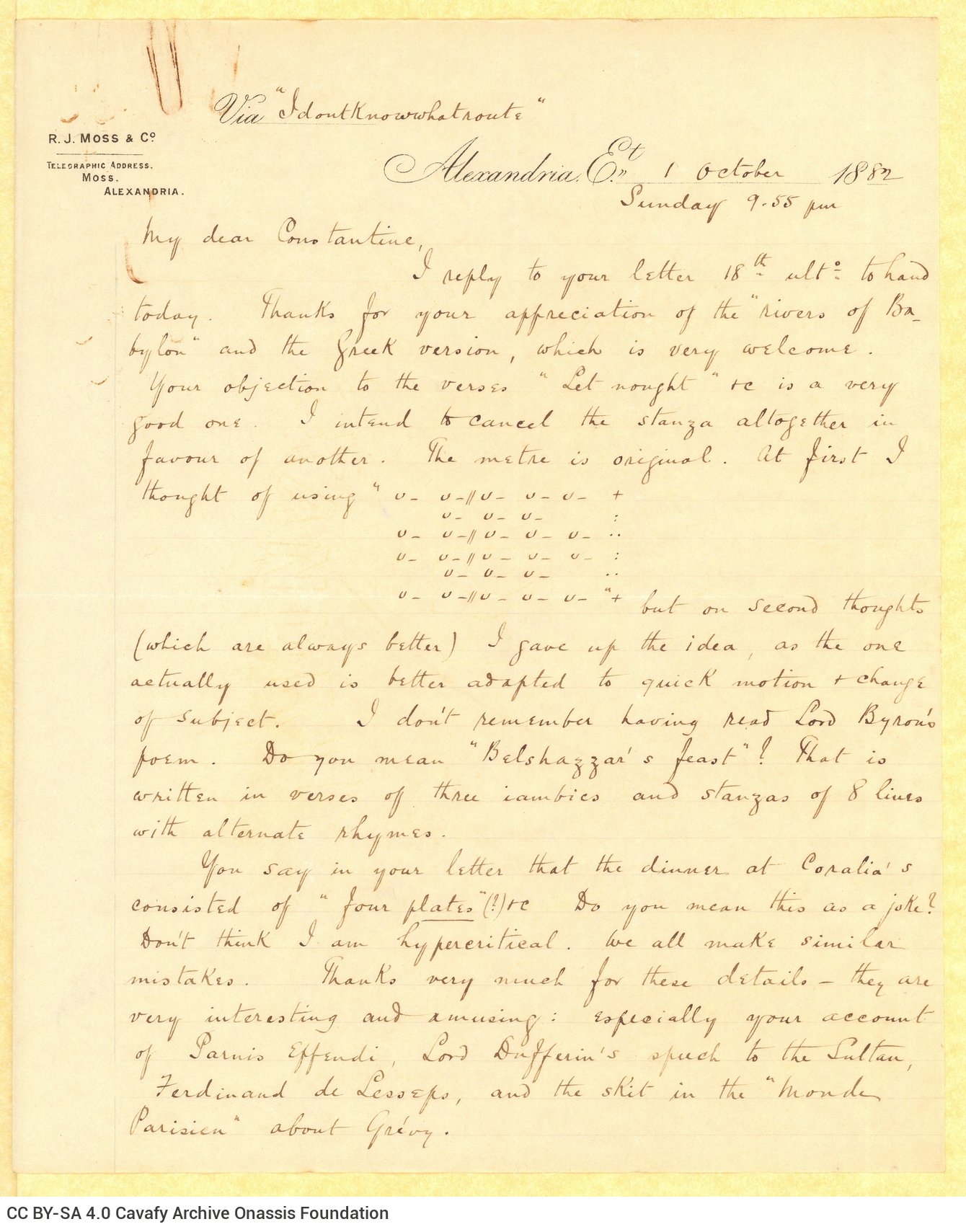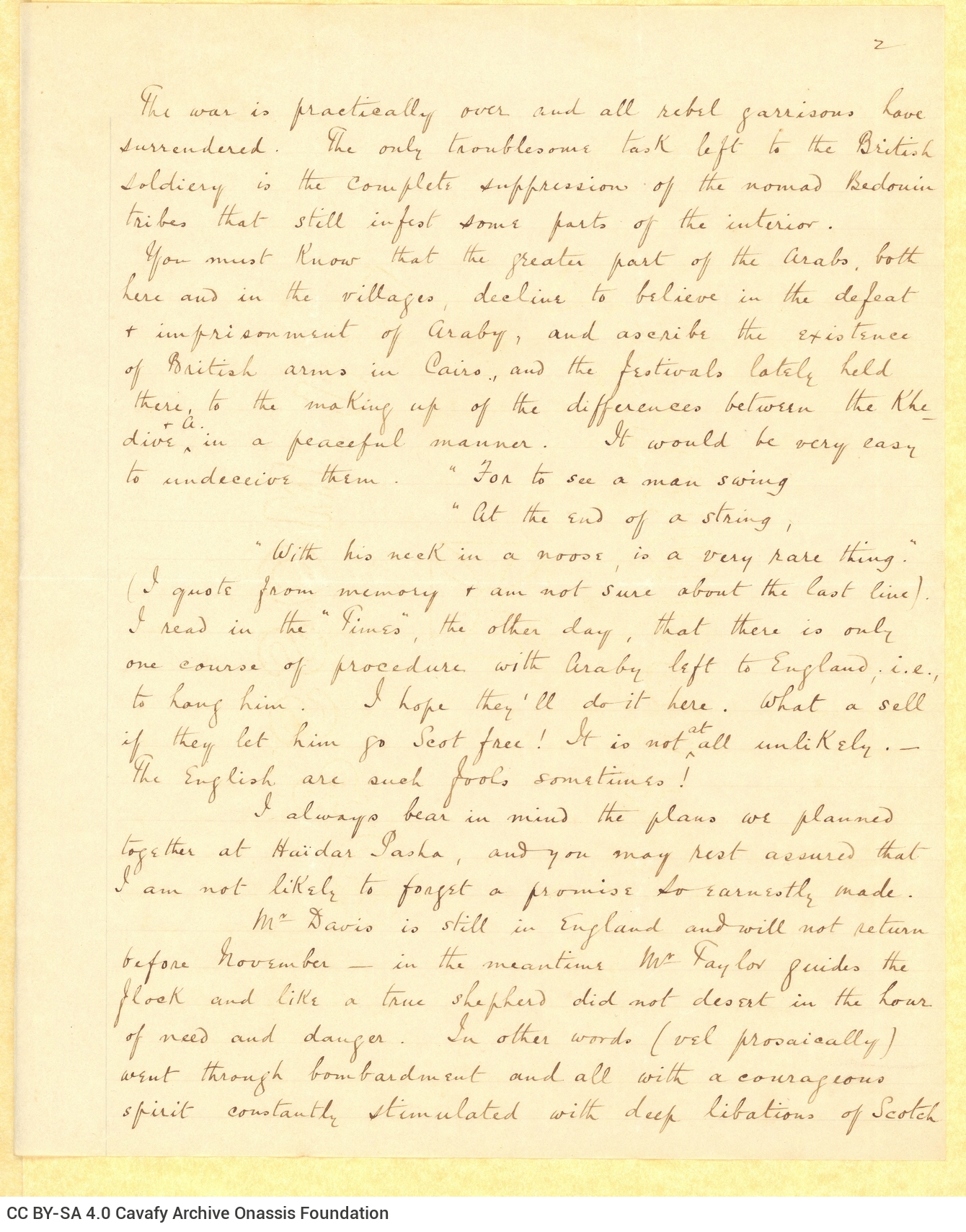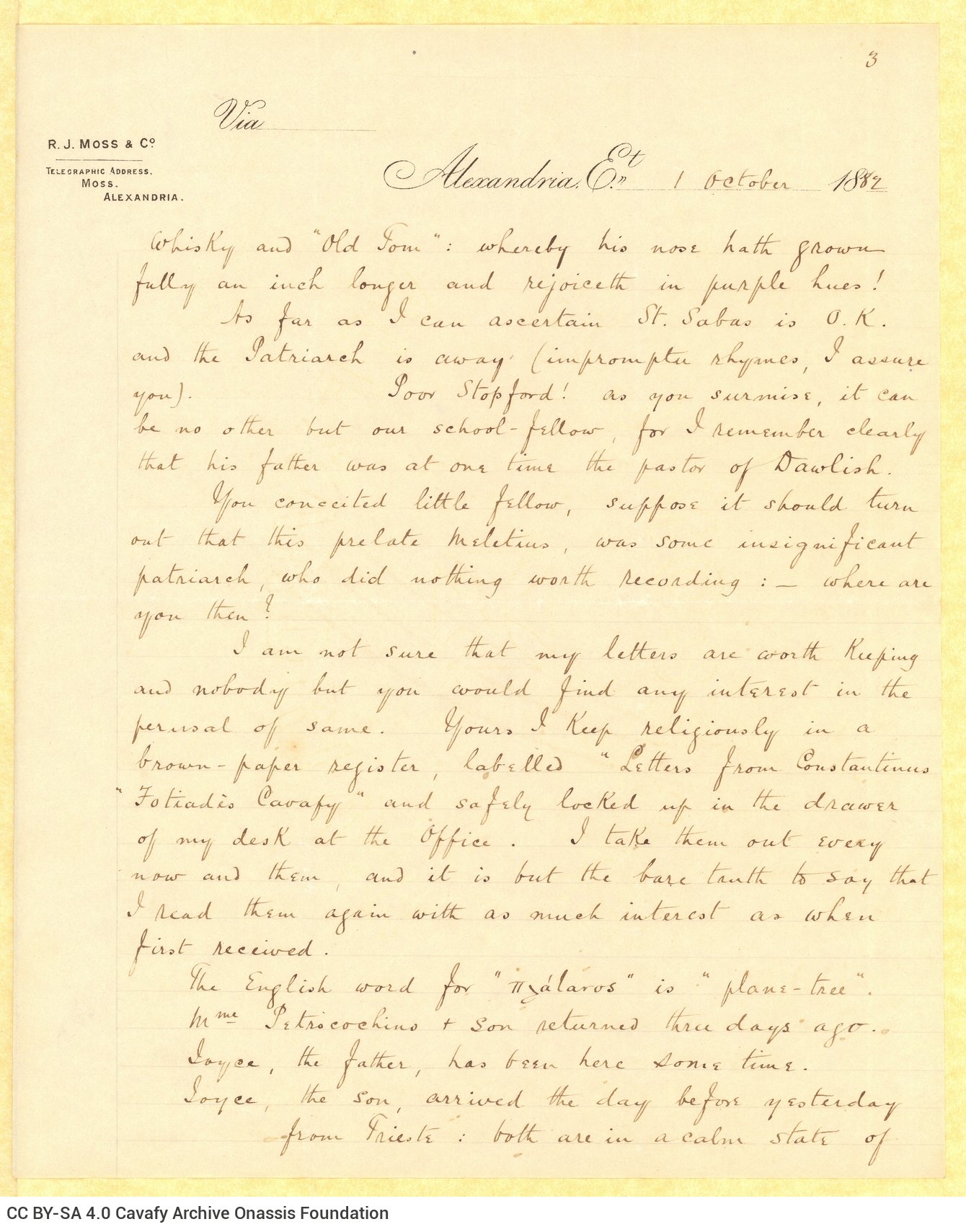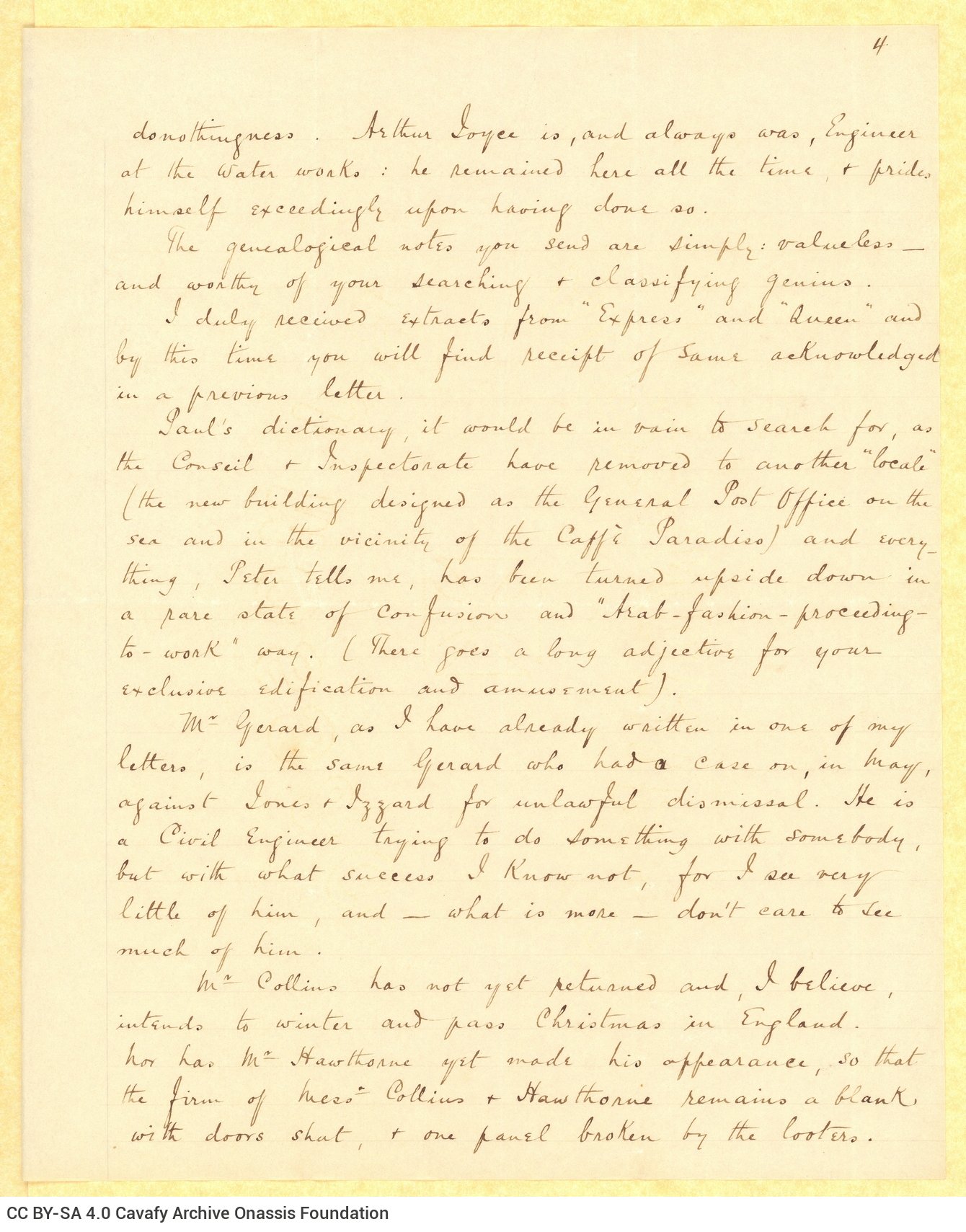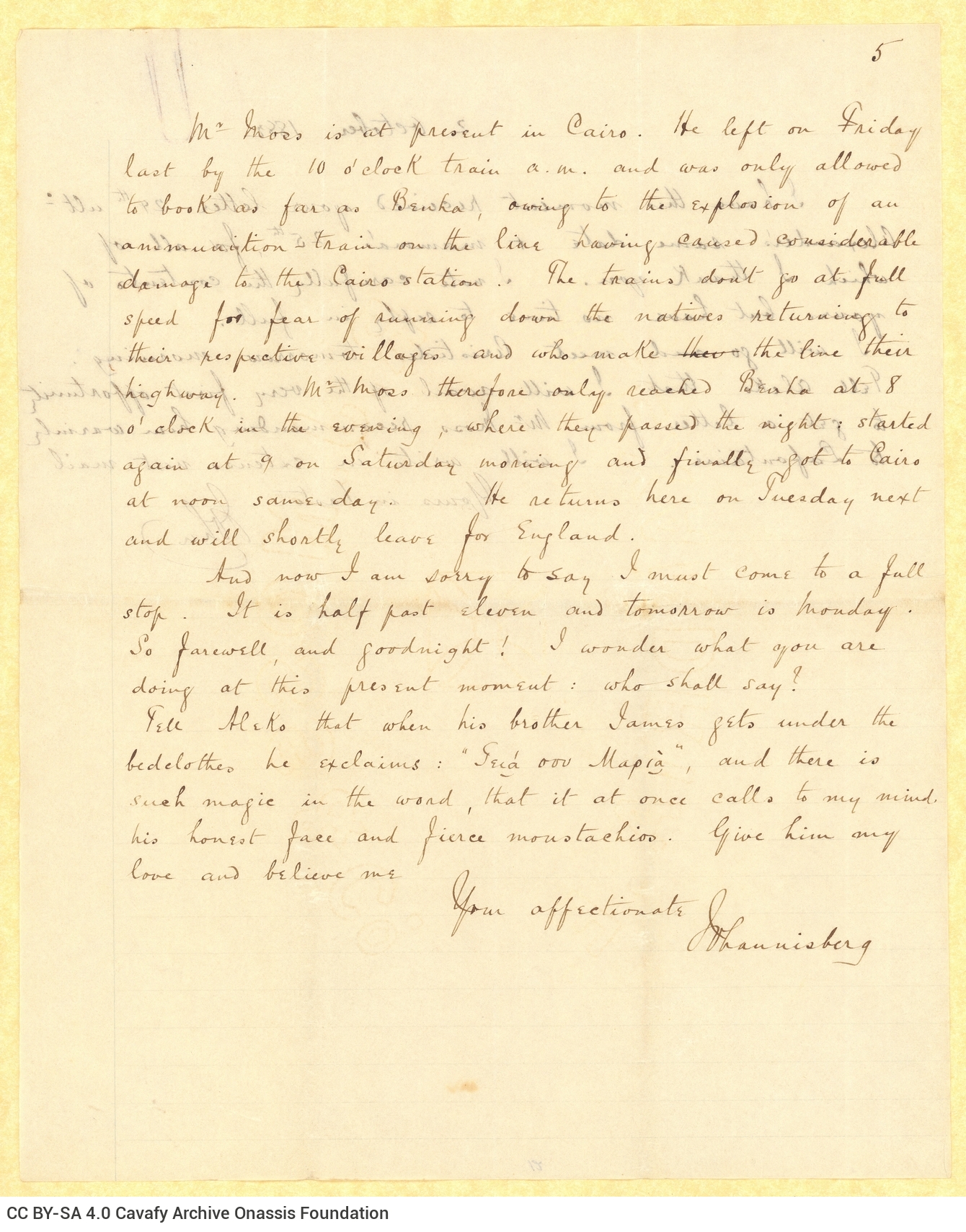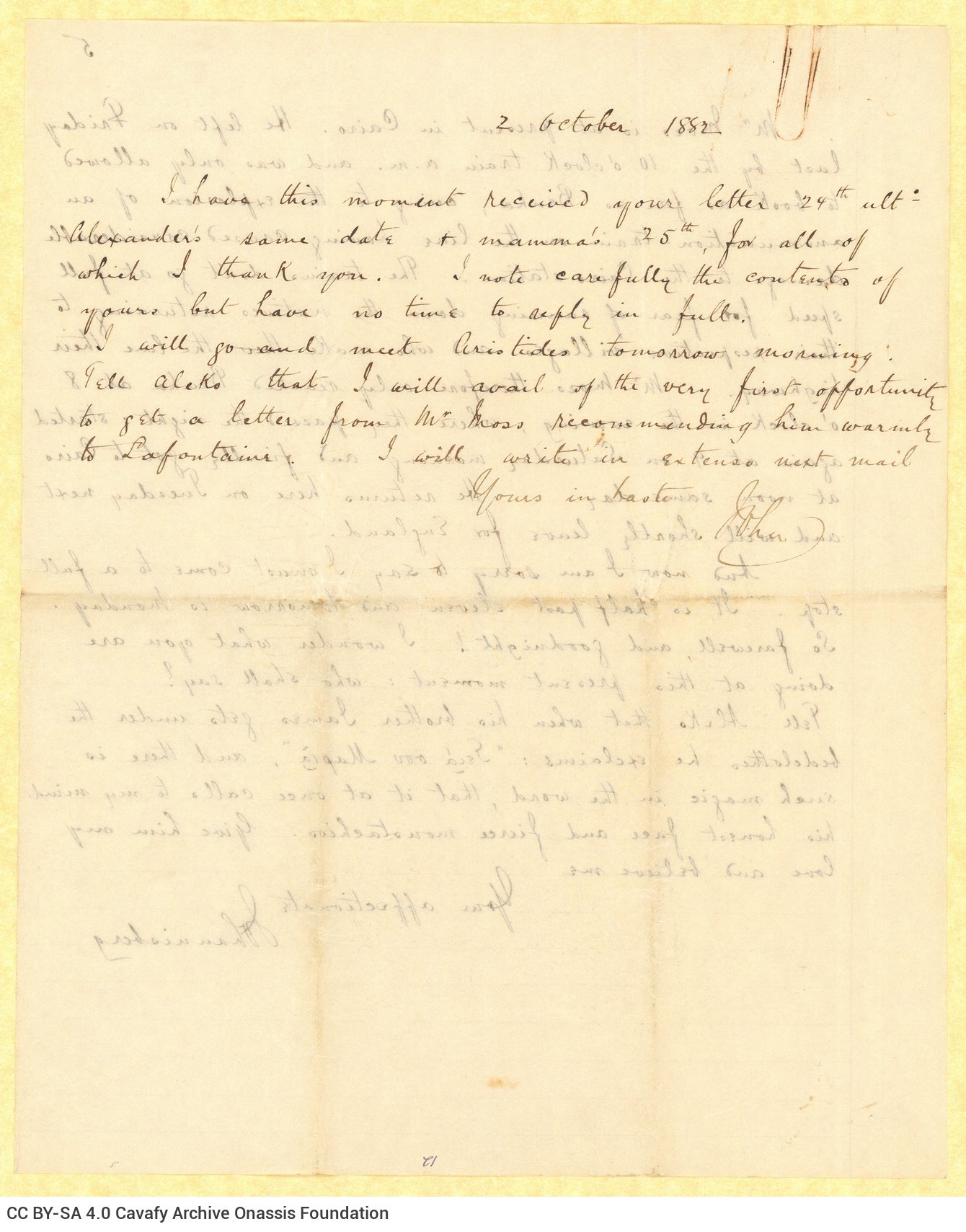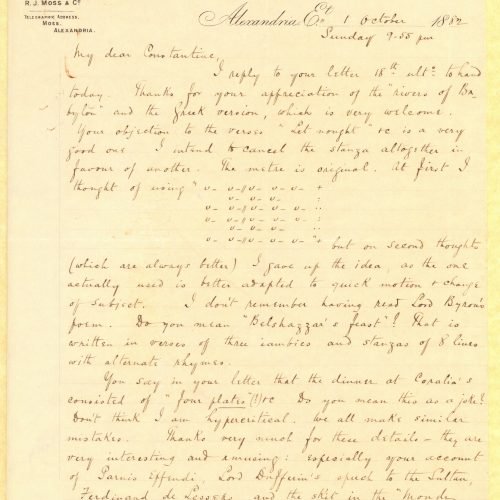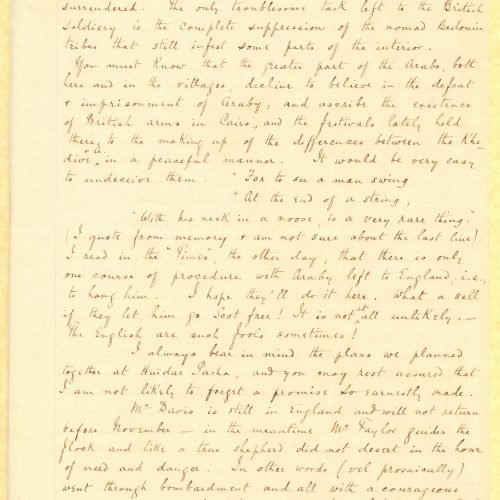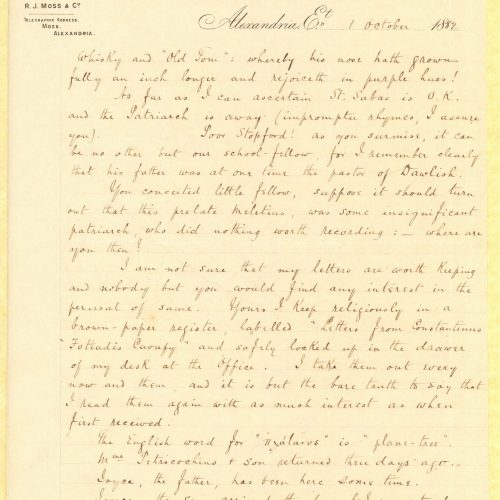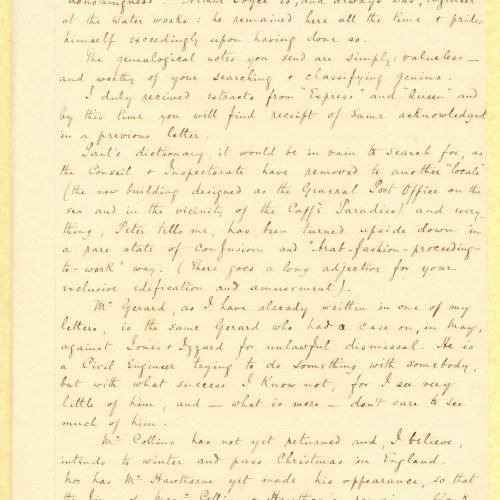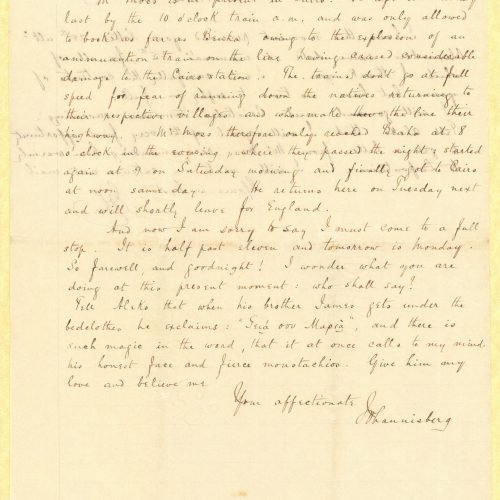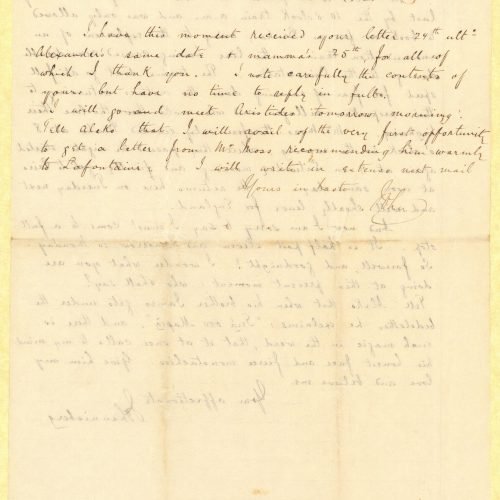υπογράμμιση
υπογράμμιση
πράσινη γραμματοσειρά
κίτρινη γραμματοσειρά
κόκκινη γραμματοσειρά
DIGITAL OBJECT DESCRIPTION
IDENTITY AREA
44 x 27 cm
CONTEXT AREA
CONTENT AND STRUCTURE AREA
Handwritten letter by John Cavafy to C. P. Cavafy, written over two days, on the first and third pages of two double sheet notepapers and on the recto of a letterhead of R. J. Moss & Co., Alexandria; the letter is dated 1/10/1882. Pages 2-5 are numbered at top right. Comments on a poem by John, on the situation in Egypt and Alexandria. Social news from Alexandria. Supplementaρy note on the verso of the letterhead, dated 2/10/1882.
CONDITIONS OF ACCESS AND USE AREA
Mainly English
Writing in ink. Indiscernible watermark. Physical item wear: oxidations.
NOTES AREA
The transcription and editing of the letters of John Constantine Cavafy addressed to C. P. Cavafy was first carried out by Katerina Ghika; said transcriptions were subsequently uploaded to the official website of the Cavafy Archive.
John Cavafy refers to his poem “By the rivers of Babylon” and incorportes the remarks of C. P. Cavafy. The latter seems to have translated it into Greek.
ACCESS POINTS
Cavafy, John Constantine. “Letter by John Cavafy to C. P. Cavafy”. Letter, 01-02/10/1882. GR-OF CA CA-SF02-S01-SS02-F20-SF001-0005 (380), Onassis Foundation C. P. Cavafy Fonds. From The Digital Collection of the Cavafy Archive, edited by Onassis Foundation, Athens, last modified 01.10.2025. https://doi.org/10.26256/CA-SF02-S01-SS02-F20-SF001-0005.
